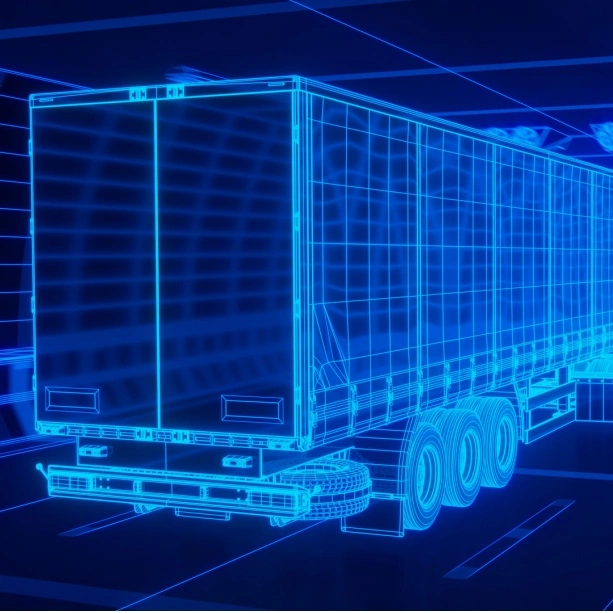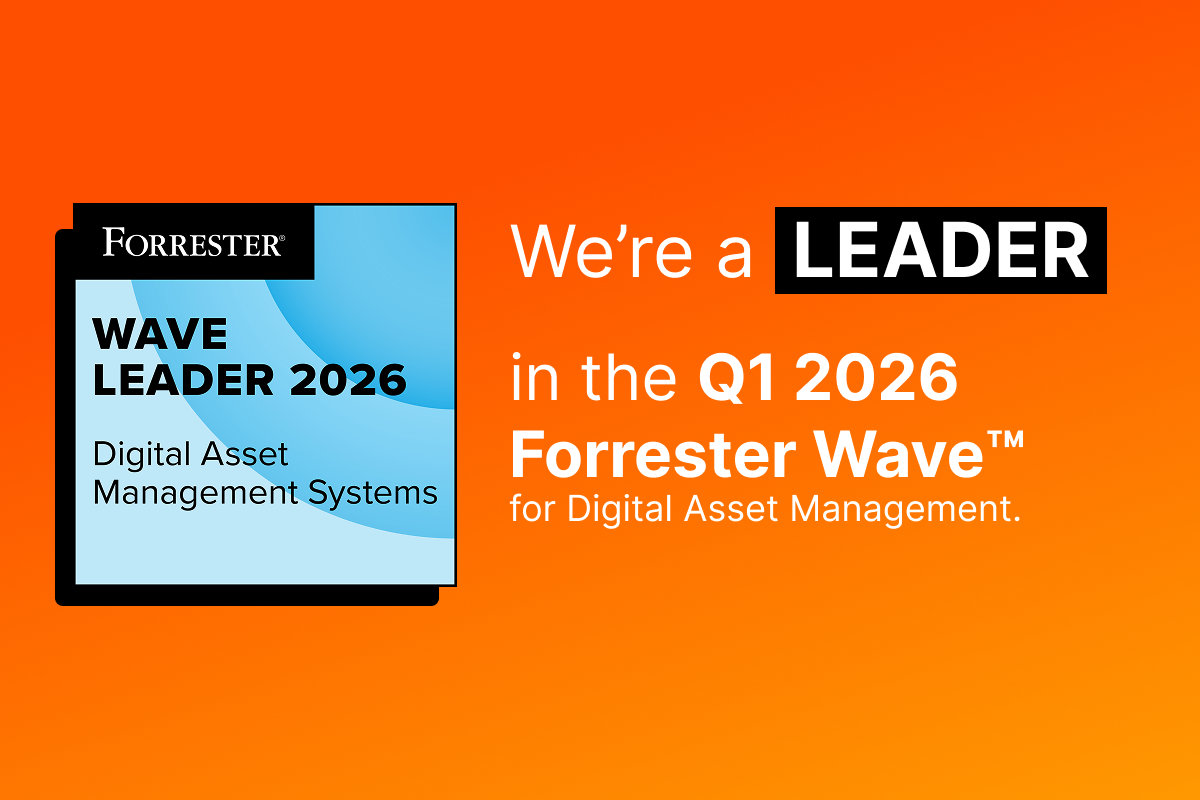As we find new uses for modern technology, everything’s becoming smarter, and that includes our trailers. Smart trailers are one of the latest innovations in logistics asset tracking technology, providing a number of advantages over their mundane counterparts. However, the implementation rate doesn’t quite match those benefits. Throughout this blog, we’ll look at what makes a smart trailer, how they help manage fleets, why implementation rates are low, and what asset tracking technologies can provide alternatives that offer the same benefits without the same barriers.
Increase Your ROI by Investing in AirFinder Everywhere
- Loss Prevention. Reduce the amount of loss that occurs during the supply chain process
- Location Coverage. AirFinder Everywhere uses a combination of GPS, Cellular, and WiFi to determine location everywhere
- Security Alerts. Know when a delay in shipment has occurred so the problem
can be addressed immediately.
The Evolution from Mundane Trailers to Smart Trailers
The concept of smart trailers has its roots in the early 2000s when advancements in asset tracking technology started to make their way into the transportation and logistics industry. While the idea of using technology to enhance trailers had been around for some time, it was not until the early 2000s that smart trailers began to take shape.
The early iterations of smart trailers focused primarily on tracking and monitoring capabilities. These trailers were equipped with GPS trackers and sensors that could provide real-time location data and information on temperature, humidity, and other environmental factors. While these early smart trailers were rudimentary by today’s standards of smart technology, they laid the foundation for the more advanced smart trailers that would follow.
As technology continued to advance, so too did the capabilities of smart trailers. By the mid-2000s, smart trailers were equipped with a range of sensors and devices that could provide a wealth of data on the trailer and its contents. These trailers could monitor everything from the condition of the cargo to the performance of the trailer itself, allowing for more efficient and effective management of goods.
One of the key advancements in the history of smart trailers was the development of integrated telematics systems. These systems allowed trailers to communicate with other devices and systems, such as fleet management software and central monitoring stations. This integration enabled trailers to provide real-time data on their location, condition, and status, leading to improved tracking, monitoring, and management of goods.
Another important development in the history of smart trailers was the introduction of automated features. Early smart trailers were equipped with automated locking and unlocking systems, as well as alarms and notifications for issues such as temperature deviations or unauthorized access. These features helped improve the security and safety of the trailer and its contents.
In recent years, smart trailers have continued to evolve, with new technologies such as Internet of Things (IoT) and artificial intelligence (AI) being integrated into their systems. These technologies have further enhanced the capabilities of smart trailers, allowing them to provide even more detailed and accurate data on the trailer and its contents. These highly intelligent trailers are what we tend to refer to today when we talk about smart trailers.
What Makes a Smart Trailer?
The “smart” descriptor gets used across a wide range of modern technologies, making it difficult to know what it actually means for any given smart object. With this variable definition of “smart,” it’s important to discuss what features come together to build intelligent trailers and what we refer to as “smart trailers.”
Real-time Tracking and Monitoring
Smart trailers are equipped with advanced tracking and monitoring systems that provide real-time data on the location, condition, and status of the trailer and its contents. These systems use GPS technology and sensors to track the trailer’s movements and monitor factors such as temperature, humidity, and cargo weight. This real-time tracking and monitoring capability allow fleet managers to have better visibility into their operations and make informed decisions.
Temperature and Humidity Control
Smart trailers feature temperature and humidity control systems that ensure the optimal conditions for transporting temperature-sensitive cargo. These systems use sensors and climate control technology to maintain a consistent temperature and humidity level inside the trailer, even in extreme weather conditions. This helps prevent spoilage and damage to perishable goods, ensuring they arrive at their destination in optimal condition.
Automated Custody Tracking
Smart trailers are equipped with automated custody tracking systems that streamline the process of documenting custody for each individual piece of cargo. These systems automatically record which trailer a product is on and who is responsible for it at any given time. This helps create accountability while adding an extra layer of security when it comes to ensuring that cargo is placed on the right trailer and headed to the right location.
Predictive Maintenance Capabilities
Smart trailers feature predictive maintenance capabilities that allow fleet managers to anticipate and address maintenance issues before they occur. These capabilities use data from sensors and onboard diagnostics to identify potential problems with the trailer’s components and systems. By detecting issues early, fleet managers can schedule maintenance proactively, minimizing downtime and reducing repair costs.
The Benefits of Smart Trailers
If these are the functionalities that make up a smart trailer, then what are the benefits they produce that draw people to smart trailers in the first place? Just like with features, “smart” can mean any number of things in terms of the benefits that a smart technology can provide. For smart trailers, the most immediate benefits include:
Improved Asset Visibility
One of the key benefits of smart trailers is improved asset visibility. With real-time tracking and monitoring capabilities, fleet managers can track the location and status of their trailers and cargo at all times. This improved visibility helps prevent theft and loss of assets, as well as enables better coordination and scheduling of deliveries. Many of the other benefits seen from smart trailers can be traced back to this core benefit of improving asset visibility.
Enhanced Security and Theft Prevention
Smart trailers offer enhanced security features that help prevent theft and unauthorized access to cargo. These features include GPS tracking, remote locking systems, and tamper-proof seals. This can also include optional alerting whenever trailer doors are opened, allowing you to respond if they’re opened at an unexpected time. By ensuring the security of the trailer and its contents, smart trailers help protect valuable assets and reduce the risk of theft and loss.
Increased Operational Efficiency
Smart trailers improve operational efficiency by streamlining processes such as loading, unloading, and maintenance. Automated systems alert workers of approaching vehicles, allowing for quicker responses and reduced downtime. This, combined with the ability to pursue maintenance only when needed, leads to more efficient use of resources. Additionally, real-time trailer tracking and monitoring enable fleet managers to optimize routes, schedules, and resource allocation, further improving efficiency.
Cost Savings
Smart trailers help companies save money in several ways, many of which are directly linked to the other benefits we’ve already discussed. By reducing the risk of theft and loss, they protect valuable assets and reduce the need for insurance claims. Automated alerting systems and predictive maintenance capabilities reduce maintenance costs and minimize downtime, saving on repair and labor expenses. Additionally, increased operational efficiency leads to fuel savings and lower operating costs overall.
The Barriers to Implementing Smart Trailers
Clearly, there are many benefits to smart trailers, and according to our timeline, they’ve existed in some form for quite some time now. Despite all that, it’s rare to actually see smart trailers out on the road. Some larger logistics and transportation companies might include some smart trailers in their fleet, but very rarely do they even make up the majority, nevermind the fact that most small to midsize companies don’t have access to these trailers at all. So if there’s so many benefits, why are implementation rates so low? These low rates can be boiled down to three key barriers:
High Cost of Implementation and Maintenance
The main and perhaps most pressing barrier associated with adopting smart trailers is the initial cost of implementation and continuing cost of upkeep. The simple truth of the matter is that most logistics companies don’t buy new trailers unless their old ones have reached the end of their lifespan and need to be replaced or the scope of their operations has expanded enough to warrant additional resources. Trailers are not like phones or gaming consoles; it is almost unheard of for fleet managers to replace functional trailers just because there’s a newer version on the market. Even when they do need new trailers, smart trailers are still incredibly expensive compared to mundane trailers, and maintaining the integrated technology requires far more costly ongoing maintenance than a mundane trailer might. This is why even large companies very rarely invest in full fleets of smart trailers – it’s just not cost effective.
Incompatibility with Existing Systems
Another challenge that keeps companies from incorporating smart trailers into their operations is an inability to ensure compatibility with existing fleet management systems and infrastructure. Many companies that create smart trailers already have specific systems that they want you to use in conjunction with their trailer tracking technology. While they might technically not require use of their own systems, it can still be incredibly difficult to integrate with your existing systems if neither the smart trailer or your current fleet management technology is built to be integration compatible. Even if it’s possible, integrating smart trailers with existing systems and processes often requires complicated and continuous upgrades or modifications to ensure seamless communication and data sharing. The alternative is, of course, just switching entirely to the smart trailer’s recommended system, but that requires retraining your workforce and losing any familiarity you already have with your existing system.
Ongoing Data Privacy and Security Concerns
Data privacy and security is another significant barrier that prevents companies from investing in and implementing smart trailers. The type of connectivity that these trailers use to transmit data – usually some combination of direct Bluetooth and WiFi connections – are some of the most susceptible to security breaches. This can make it easier for hackers and other threats to breach not only the smart trailer system, but any other system that the company uses that connects through the same network. All it takes, after all, is one open door, and it’s very difficult for a company’s own IT or cybersecurity specialists to deal with these issues due to the general public unfamiliarity with the ins and outs of smart trailers and their functions. This can result in breaches of sensitive information and tampering with the company’s central system, leading many companies to forgo smart trailers entirely.
How to Achieve the Benefits of Smart Trailers with Your Current Trailers
The simple fact of the matter is that while it’s quite likely that smart trailers might eventually become the main or perhaps only choice for logistics companies in the future, the present of this technology is still an unrealistic or at least risky investment for many companies. They have yet to reach a point where they’re universally affordable, streamlined, and secure to use, which means the risk is still higher than the benefits for many companies. Still, there are clear benefits to implementing smart trailers, and many fleet managers are looking for alternatives that can give them those same benefits without the same barriers.
Responding to this need, Link Labs has created our Surround the Truck model, centered around our SuperTag Hub functionality. By placing our SuperTag trailer tracking device into Hub mode and placing them within trailers with tagged assets, we can help logistics companies effectively transform their mundane trailers into smart trailers at a fraction of the cost and with considerably more integration and security functions. The smaller BLE tags will report to the SuperTag placed within their vicinity, allowing the SuperTag to report back to the central system which assets are traveling on which trailer and under the custody of what driver. If an asset is removed from the SuperTag’s vicinity unexpectedly or if a critical condition falls out of a set range, fleet managers will receive alerts allowing them to respond to address the disruption. You can also use the central trailer data to monitor utilization patterns, allowing for improved usage and predictive maintenance. Furthermore, our AirFinder Everywhere system is fully capable of integration with your systems, allowing you to keep using the UI you know and love. We also don’t require direct WiFi connectivity, creating a more secure system that won’t compromise your internal network.
If you’re interested in learning more about how you can transform your mundane trailers into smart trailers at an affordable cost, book a demo with our team of experts today!

Publisher: Source link











